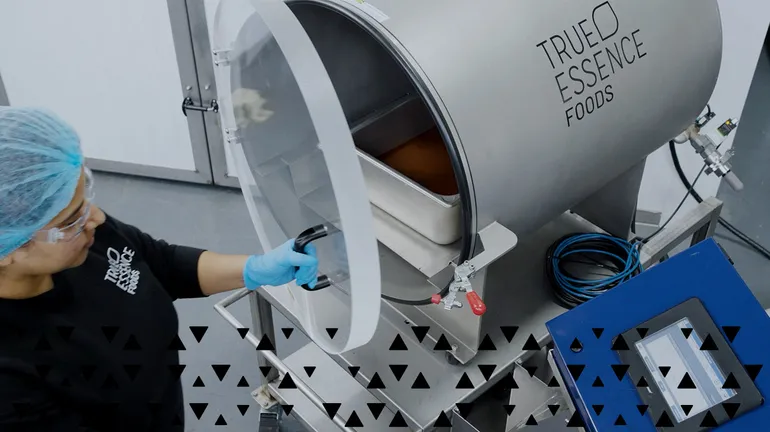Food Tech solutions to alleviate supply chain woes: True Essence Foods CEO

From vanilla and chocolate, to olive oil and coffee, many popular commodities are being hampered by issues in their supply chains.
In Madagascar, the region responsible for supplying most of the world’s vanilla, there is concern of an impending shortage after Cyclone Gamane flooded fields and stripped vanilla pods from their vines. The International Cocoa Organization pointed to production declines of the ingredient in Côte d’Ivoire and Ghana — two countries that produce the most — and over the past year, the price of cocoa has shot up. Hot dry weather in South-east Asia is spurring fears of coffee shortages, while olive oil is living up to its coined name of “liquid gold,” as its biggest exporter, Spain, has halved its production due to drought and increased its price of the ingredient by 112% since 2022.
Some experts believe it is time for the food and beverage industry to rethink how they produce these ingredients. Food technology services could help ease the effects of some of these supply chain woes.
“From adverse weather events that damage crops, to labor issues, to rising prices in various ingredients, these factors have a trickle-down effect that often gets passed along to the consumer in the form of higher prices,” said Matt Rubin, CEO of True Essence Foods in an interview with Food Dive.
True Essence is a food technology company with equipment solutions designed to protect flavor and enhance the quality and sustainability of a wide range of food and beverage products, according to the Indianapolis-based company.
The company installs industrial pieces of mechanical equipment at its clients’ facilities, which allows them to create the kinds of products they’ve always wanted to but have been unable to through existing practices, said Rubin. For example, through its proprietary flavor symmetry technology, True Essence employs a unique molecular filter which separates and removes water from fresh ingredients, keeping the flavor, aroma, and nutritional components of the product intact.
The company said that when implemented across the globe, “True Essence Foods technology could lead to a staggering reduction in fresh food waste.”
There are two methods True Essence says it is using to help solve the crisis — through its proprietary Flavor Balancing and Flavor Symmetry technologies.
Flavor Balancing is a rapid, non-additive solution utilizing precisely controlled pressure conditions to rapidly and preferentially release off-flavors, resulting in a more smooth and balanced taste, said Rubin. The technology works with fermented food products like spirits, wine, vinegar, beer, chocolate, coffee, condiments, pickled products, and more.
Flavor Symmetry, said Rubin, is a novel dehydration system that creates dried, shelf-stable products that still have fresh-picked flavor.
“Our non-additive, low-temperature drying system selectively removes water from a sealed environment, while recirculating the air in a closed loop to dry the products. As a result, Flavor Symmetry maintains and protects all of the fresh flavor, potency and aroma of a wide array of product categories like herbs, spices, fruits, vegetables, juices, chocolate, teas, nutraceuticals, meats.
“We believe that we can’t solve the challenges of the food industry on our own and have created a business model that reflects this. We provide a combination of capital assets and licensing to customers who are looking for a partner that can help them create quality products in a more sustainable way,” the CEO said.
As far as the time frame for food technology systems to successfully ease supply chain issues in affected industries like coffee, chocolate, and others, Rubin said it will depend from category to category.
Rubin said one of the most exciting things happening at True Essence is the uncovering of problems the industry the company is uniquely positioned to help solve.
“In addition to helping customers achieve maximum product quality and consistency, our tech is able to help minimize waste across the supply chain.”
Flavor Balancing, for example, takes products that would otherwise be discarded, and recoups them to meet the standards of consumers. Meanwhile, Flavor Symmetry allows consumers to reach for a product that would easily go bad, reconstitute it with water, and enjoy it as it would be fresh.
For example, consumers can enjoy a carrot at any point after purchase without worrying about it rotting in their fridge and ending up in a landfill.
According to Rubin, collaboration is key within the industry in order to ease supply chain woes for the long-term. Rubin said True Essence does this from the early stages when working with customers, beginning with R&D testing to ensure its technology is the right fit for the challenge.
Source: fooddive.com

